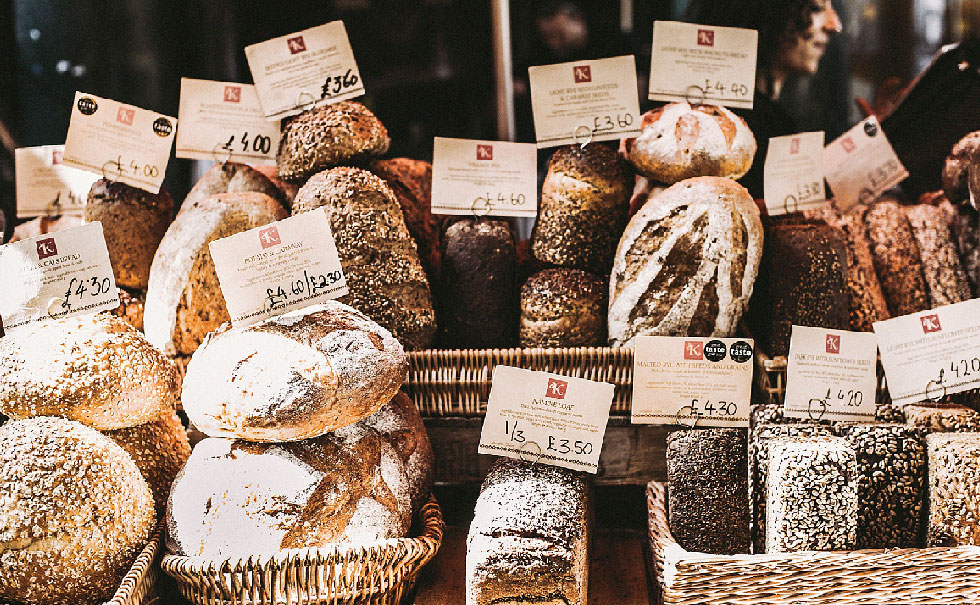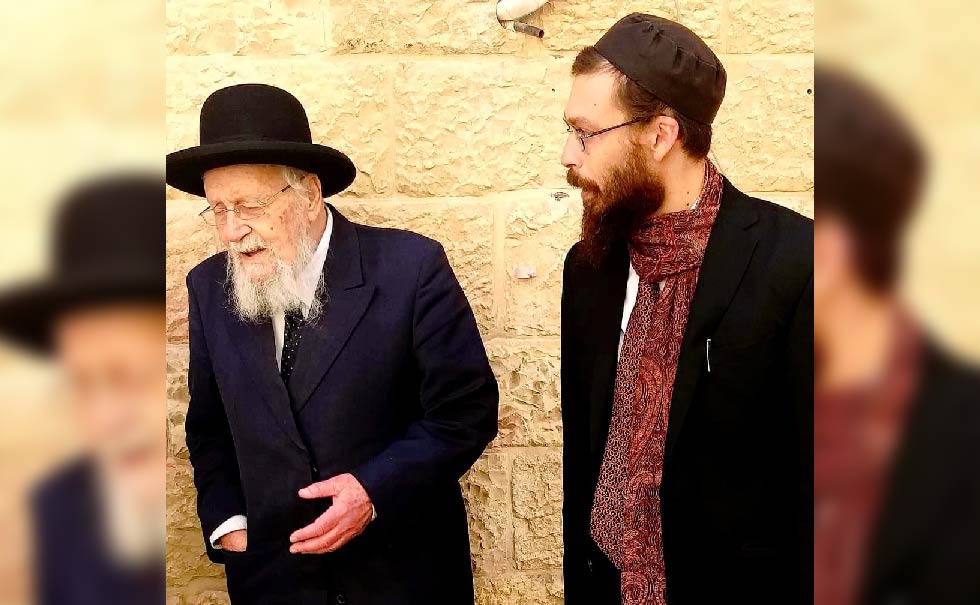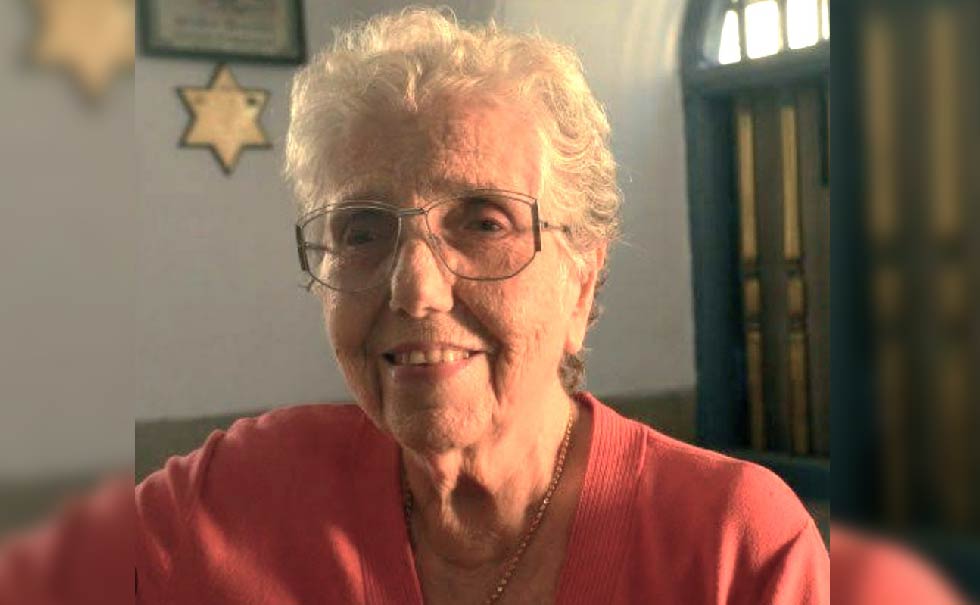Breaking Bread
Bread is perhaps the most widely consumed food on the planet, it is also possibly one of the oldest foods requiring preparation, there is evidence that it was made over 30,000 years ago (1) in sites in both Europe and Australia.
Beyond the historical and nutritional importance of the “Staff of life” (2) the cultural importance in terms of anthropology and social/cultural customs is immense and we find that bread and dough is often used as a synonym for money across the world, in India the bare necessities are often called in Hindi: रोटी कपड़ा और मकान, “bread cloth and house” – along a great plethora of examples in many languages.
Within the context of world Religions stretching back into antiquity, grains and loaves of bread tend to have a deep symbolic meaning associated with fertility, wealth and knowledge, in the Torah the rectification of mankind is given through the mechanism of bread (3):
בְּזֵעַ֤ת אַפֶּ֙יךָ֙ תֹּ֣אכַל לֶ֔חֶם עַ֤ד שֽׁוּבְךָ֙ אֶל־הָ֣אֲדָמָ֔ה כִּ֥י מִמֶּ֖נָּה לֻקָּ֑חְתָּ כִּֽי־עָפָ֣ר אַ֔תָּה וְאֶל־עָפָ֖ר תָּשֽׁוּב׃
“(Thus) By the sweat of your brow shall you eat bread, until you return to the ground— For, from it you were taken. For dust you are, and to dust, you shall return.”
There is an enigmatic teaching from the Midrash Agita on this verse (4):
בזעת אפיך תאכל לחם. מכאן למדנו שאלמלא לא חטא אדם היתה הארץ מוציאה גלוסקאות:
“In the sweat of thy face shalt, thou eat bread. From this, we learned that if it were not for the sin of man, the earth would have produced “cakes”
This is obviously meant to be understood metaphorically;
that without the mistaken consumption of the Fruit of the Tree of Knowledge(5) there would be no requirement for the exertion of self to acquire “bread” which is often symbolically used to represent wisdom or knowledge and as a direct synonym for the Torah itself as we see regularly throughout Torah literature, for example in the phraseology of the Rambam(6) which is based on the Talmud:
וַאֲנִי אוֹמֵר שֶׁאֵין רָאוּי לְטַיֵּל בַּפַּרְדֵּס אֶלָּא מִי שֶׁנִּתְמַלֵּא כְּרֵסוֹ לֶחֶם וּבָשָׂר. וְלֶחֶם וּבָשָׂר הוּא לֵידַע הָאָסוּר וְהַמֻּתָּר וְכַיּוֹצֵא בָּהֶם מִשְּׁאָר הַמִּצְוֹת.
“I maintain that it is not proper for a person to “stroll” in the Pardes (esoteric wisdom) unless he has (first) filled his belly with bread and meat. “Bread and meat” refer to the knowledge of what is permitted and what is forbidden, and similar matters concerning other mitzvot.”
Challah is perhaps the bread we most associate with Jewish life, every week our Shabbat tables are adorned with a double portion of the delicious plaited bread that is iconic of religious tradition:
The word challah is actually taken from the Torah from the context of offering to Hashem(7):
הָיָ֕ה בַּאֲכׇלְכֶ֖ם מִלֶּ֣חֶם הָאָ֑רֶץ תָּרִ֥ימוּ תְרוּמָ֖ה לַיהֹוָֽה׃
רֵאשִׁית֙ עֲרִסֹ֣תֵכֶ֔ם חַלָּ֖ה תָּרִ֣ימוּ תְרוּמָ֑ה כִּתְרוּמַ֣ת גֹּ֔רֶן כֵּ֖ן תָּרִ֥ימוּ אֹתָֽהּ׃
מֵרֵאשִׁית֙ עֲרִסֹ֣תֵיכֶ֔ם תִּתְּנ֥וּ לַיהֹוָ֖ה תְּרוּמָ֑ה לְדֹרֹ֖תֵיכֶֽם׃
“(and) you eat of the bread of the land, you shall set some aside as a gift to the LORD:
As the first yield of your baking, you shall set aside a loaf as a gift; you shall set it aside as a gift like the gift from the threshing floor.
You shall make a gift to the LORD from the first yield of your baking, throughout the ages.”
It is a transformative idea to remove the unfortunate context of Tikkun as a negative reality caused by “the sin of Adam and Chava” and return it to an opportunity to be a gift to the creation and our Creator:
Were it not for the existence of the darkness, the candle would have little useful function.
For many centuries we have been held hostage to the idea of the pitiful state of mankind, this constitutes not only a literal rendition of metaphorical ideas but has been weaponized as a tool of control against many – and often within the context of the Abrahamic religions; to blame and demonize women – immediately following the “fall of Adam” the woman is gifted the very opposite name(8):
וַיִּקְרָ֧א הָֽאָדָ֛ם שֵׁ֥ם אִשְׁתּ֖וֹ חַוָּ֑ה כִּ֛י הִ֥וא הָֽיְתָ֖ה אֵ֥ם כׇּל־חָֽי׃
“The man named his wife “Chava”: because she was the mother of all the living.”
As is known and popularized in Chassidic and Kabbalistic thought, women were given the Mitzvah of taking Challah from the dough as a symbolic rectification, the source for women being intrinsically involved in taking Challah is found in the Mishnah(9) and is likely a practical ramification of women having been more commonly involved in matters of the home(10) as the Mitzvah is for both men and women and that taking Challah in our era is a Rabbinical commandment (11).
Aside from the obvious meaning of the toil to earn a living and eat our daily bread (12) “by the sweat of our brow” – there is yet another toil that man as yet has not achieved, we practice this element every Festive and Shabbat meal:
We sit together and break bread.
Ultimately our theology and religious pursuits are bound in the human search for peace with our neighbors; to sit together and feast regardless of our differences of opinion and viewpoint – there is a human need to care for each other that extends beyond all culture, language, and philosophy – Abraham our patriarch whose style of bringing people to worship of God involved feeding them(13) and we are taught that his tent was “open on all 4 sides” as to be able to invite guests from every direction(14), Abraham also fed bread to the Angels which was a great source of merit for him(15).
It is obvious that prior to this great privilege of this spiritual experience he was focused on feeding humans, that his spirituality was concerned predominantly with kindness to others. On every Shabbat and festival, we are likewise commanded to prepare a table as an offering to Hashem in a manner that resembles the temple service in terms of wine, candlelight, and showbreads – however, the truly remarkable thing is that we are also sharing this experience with others, the Talmud records the following deep teaching about receiving guests (16):
מִפְּנֵי הָאוֹרְחִין וְכוּ׳. אָמַר רַבִּי יוֹחָנָן: גְּדוֹלָה הַכְנָסַת אוֹרְחִין כְּהַשְׁכָּמַת בֵּית הַמִּדְרָשׁ, דְּקָתָנֵי: ״מִפְּנֵי הָאוֹרְחִין וּמִפְּנֵי בִּטּוּל בֵּית הַמִּדְרָשׁ״. וְרַב דִּימִי מִנְּהַרְדְּעָא אָמַר: יוֹתֵר מֵהַשְׁכָּמַת בֵּית הַמִּדְרָשׁ, דְּקָתָנֵי ״מִפְּנֵי הָאוֹרְחִין״, וַהֲדַר ״וּמִפְּנֵי בִּטּוּל בֵּית הַמִּדְרָשׁ״. אָמַר רַב יְהוּדָה אָמַר רַב: גְּדוֹלָה הַכְנָסַת אוֹרְחִין מֵהַקְבָּלַת פְּנֵי שְׁכִינָה, דִּכְתִיב: ״וַיֹּאמַר ה׳ אִם נָא מָצָאתִי חֵן בְּעֵינֶיךָ אַל נָא תַעֲבֹר וְגוֹ׳״
We learned in the Mishna: that one may move baskets of produce due to the guests and in order to prevent the suspension of Torah study in the study hall.
Rabbi Yohanan taught:
“Hospitality toward guests is as great as rising early to go to the study hall, as the Mishna equates them and teaches: Due to the guests and due to suspension of Torah study in the study hall.”
Rav Dimi from Nehardea taught:
“Hospitality toward guests is greater than rising early to the study hall, as it teaches: Due to the guests, and only afterward: And due to suspension of Torah study in the study hall.”
Rav Yehuda said that Rav had said on a related note:
“Hospitality toward guests is greater than receiving the Divine Presence, as when Abraham invited his guests it is written (17): “And he said: Lord, if now I have found favor in Your sight, please pass not from Your servant”.
Once when traveling in India we were granted a very special privilege, friends of our family from Dehli arranged for us to visit the Kitchens of the Golden Temple, a Sikh gurdwara located in the city of Amritsar, Punjab established in 1581-1589.
This temple, also known as “ਹਰਿਮੰਦਰ ਸਾਹਿਬ” “abode of God” in the Punjabi language, it is reported (18) that over 100,000 free vegetarian meals are served to visitors, a true testimony to what is possible when people are dedicated to humanitarian action as a mechanism of faith in their religion and certainly, a powerful lesson that we can all draw great inspiration from.
We have as a community enough synagogues, kitchens, and open hearts to facilitate generosity on a large and powerful scale, to find active mechanisms to take our faith on a transformative journey of prayer to practical action that benefits the lives of those around us and helps draw close to that long sought after the promise of peace and human dignity found in our holy Tanach(19):
הִנֵּ֣ה יָמִ֣ים בָּאִ֗ים נְאֻם֙ אֲדֹנָ֣י יֱהֹוִ֔ה וְהִשְׁלַחְתִּ֥י רָעָ֖ב בָּאָ֑רֶץ לֹא־רָעָ֤ב לַלֶּ֙חֶם֙ וְלֹֽא־צָמָ֣א לַמַּ֔יִם כִּ֣י אִם־לִשְׁמֹ֔עַ אֵ֖ת דִּבְרֵ֥י יְהֹוָֽה׃
“A time is coming—declares my Lord, Hashem—when I will send a famine upon the land: not a hunger for bread or a thirst for water, but for hearing the words of Hashem.”
Shabbat is then not only a religious celebration but a taste of the future promise to mankind, a time when our hearts and tables will be open to each other, caring for the needs of the stranger and helping to vanquish poverty both of bread and the spirit of human love.
Rabbi Jonathan Goldschmidt 2021 ©
1) “Prehistoric man ate flatbread 30,000 years ago: study”. phys.org. Science X. Agence France-Presse. 19 October 2010.
2) כִּי֩ הִנֵּ֨ה הָֽאָד֜וֹן יְהֹוָ֣ה צְבָא֗וֹת מֵסִ֚יר מִירֽוּשָׁלִַ֙ם֙ וּמִ֣יהוּדָ֔ה מַשְׁעֵ֖ן וּמַשְׁעֵנָ֑ה כֹּל מִשְׁעַן־לֶ֔חֶם וְכֹ֖ל מִשְׁעַ֖ן־מָֽיִם:
(For, behold, the Master, the Lord of Hosts removes from Jerusalem and from Judah a support and a stay, every support of bread and every support of water) – ((Isaiah 3:1))
3) Genisis 3:19
(4) Ibid
(5) The Talmud in Brachot 40a brings three opinions on what the identity of the fruit of the Tree of Knowledge:
Rabbi Meir says that the Tree of Knowledge was a grapevine—”for there is nothing that causes more heartbreak than wine….”
Rabbi Nehemiah maintains that it was a fig tree. The Torah tells us that after the sin, Adam, and Chava “knew that they were naked, and (thus) they sewed fig leaves and made themselves “aprons” (“that which caused their downfall, was then used to rectify).
Rabbi Judah says it was stalks of wheat.
“A child knows not how to call out to his father and mother (to communicate) until he has tasted grain.”
As such, the Tree of Knowledge was grain (Another direct Metaphor relating grain/bread to wisdom).
((The Midrash Rabbah (Ibid) quotes another opinion, that the fruit of the Tree of Knowledge was an Etrog, in this same Midrash it also states: “G‑d did not disclose the identity of the tree’s species and He never will.”
This was in order to protect the honor of a species that would otherwise be embarrassed.))
(6) Mishnah Torah: Yesodei HaTorah 4:13
(This phraseology is also employed by the Shulchan Aurech and a variety of other Halachic commentators.)
(7) Numbers 15:19-21
(8) Genisis 3:20
(9) Challah 1:7/2:3 & Shabbat 2:6
(10) see: Bartenura on Shabbat 2:6
(11) see: Rambam’s Mishneh Torah; Bikkurim Chapter 5
(12) Genisis 3:19
(13) Talmud: Sotah 10(b).
(14) Midrash Rabba 48:9:
אָמַר רַבִּי אַבָּהוּ אֹהֶל פְּלָן שֶׁל אָבִינוּ אַבְרָהָם מְפֻלָּשׁ הָיָה, רַבִּי יוּדָן אָמַר כְּהָדֵין דְּרוֹמִילוֹס, אָמַר אִם אֲנִי רוֹאֶה אוֹתָן שֶׁהִפְלִיגוּ אֶת דַּרְכָּם לְהִתְקָרֵב דֶּרֶךְ כָּאן, אֲנִי יוֹדֵעַ שֶׁהֵן בָּאִים אֶצְלִי, כֵּיוָן שֶׁרָאָה אוֹתָן שֶׁהִפְלִיגוּ, מִיָּד וַיָּרָץ לִקְרָאתָם מִפֶּתַח הָאֹהֶל וַיִּשְׁתַּחוּ אָרְצָה
“R. Abbahu said: The tent of the Patriarch Abraham opened at both sides. R. Judan said: It was like a double-gated passage. Said he: ‘If I see them turn aside, I will know that they are coming to me.’ When he saw them turn aside, immediately he ran to meet them.”
(Translation from Soncino)
((- it is interesting to note that Iyov (Job) is also said to have a tent open on all sides within the Midrash.))
(15) Gen 18:6 & 19:3
(16) Talmud: Shabbat 127(a)
(17) Genesis 18:3.
(18) Source: The Borgen Project
(19) Amos 8:11




